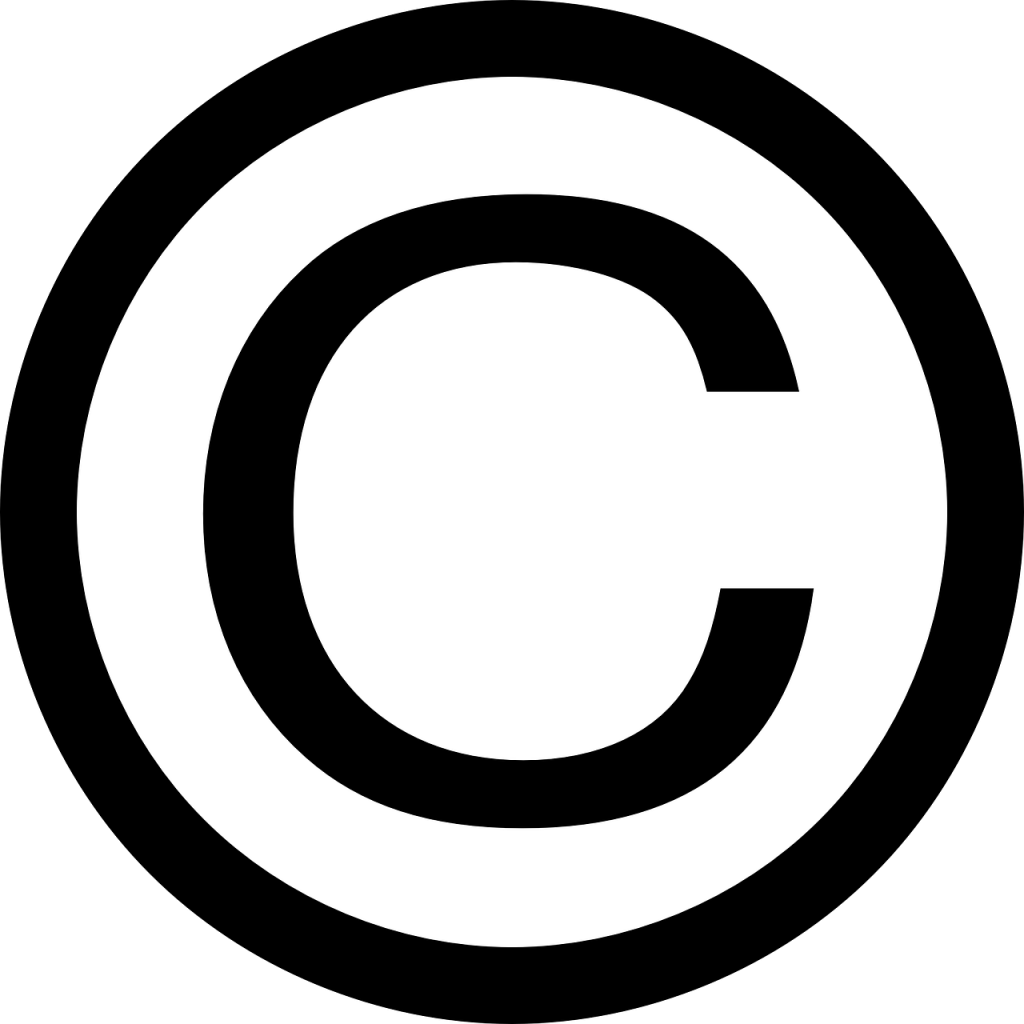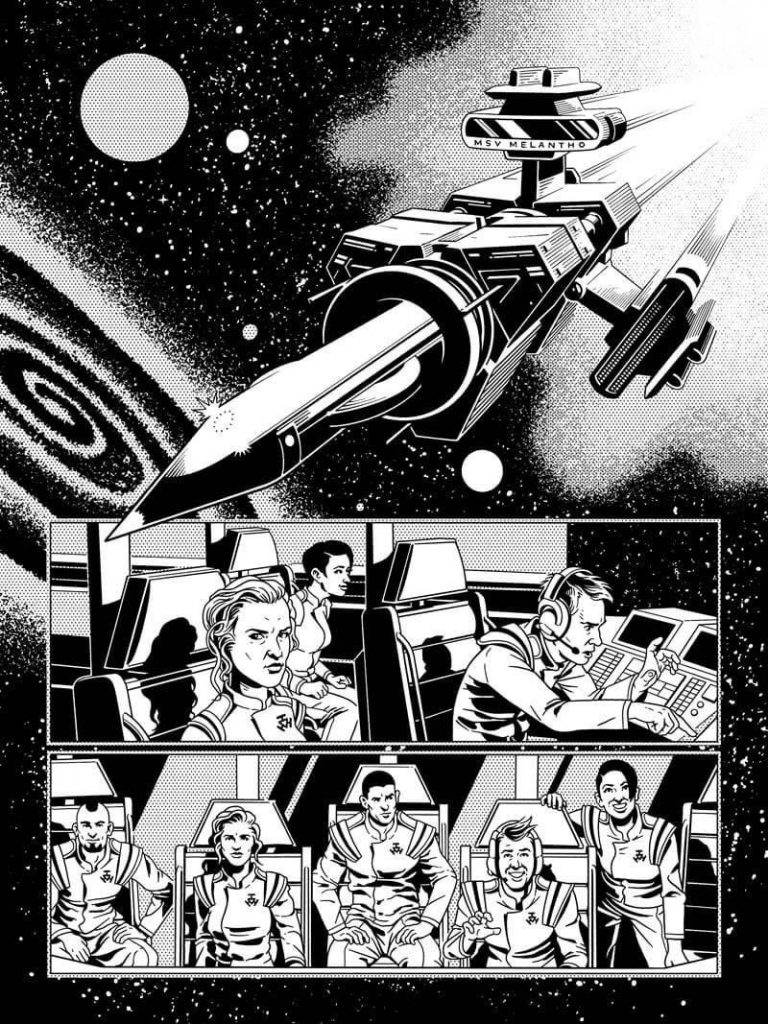Prompted by questions about copyright on The77 anthology-related The77–2000ADGroup on Facebook, comic creator Dan Whitehead has kindly given downthetubes permission to re-publish his general thoughts on how much legal protection is there in the UK for characters you create and get published without having to spend money.
Jonathan Blutarsky started the ball rolling, noting there seems to be some protection under UK IP law, but was curious as to how robust it is, especially if you’re sitting on stories that contain characters, their names, fictional brand names and so on that you haven’t had published.
Before reading on, we want to make it absolutely clear that Dan’s thoughts do not constitute legal advice, but they do offer a great steer on such matters.
If you are seeking proper, professional copyright or trademark advice, hire a lawyer!

Matters of Copyright
Some Thoughts by Dan Whitehead
There’s no “one size fits all” answer to questions about copyright, as every case would be judged on its own merits. The simple truth is that as soon as you write or create anything, under UK law you own the copyright. That’s instant and automatic – you don’t need to register it. However, that protection only covers that specific creation – that story, that drawing or whatever. So if someone copied your story word for word, or copied large chunks of it, you’d have a claim regardless of whether it had been published or not.
The problem arises from the fact that you can’t copyright ideas, only the expression of those ideas. Otherwise Disney could say “only we are allowed to use cartoon mice” for example, and Tom & Jerry would never have happened.
So to answer the question, unpublished you have very little protection against other people using character names etc that you’ve come up with, purely because it’s entirely possible for someone else to have the same idea for a name independently.
If the work has been published then there’s slightly more protection – or at least a stronger case to be made. But it wouldn’t be cut and dried. You’d have to argue how this person or company a) read your story and b) used that name deliberately because c) they knew that it would make people think their product was related to yours.
So, for example, it would be incredibly hard to claim that you happened to come up with the idea for a character called Judge Dredd but it had nothing to do with 2000AD or Rebellion’s IP. The name is well known, exists across lots of media, and could easily be defended. Dredd also has aspects that will be trademarked – the logo, the helmet and costume etc.
If it’s just you, and you created a character called “Beefy the Magic Robot”, and somebody somewhere else did the same, it’s harder to argue who ripped off who. That’s why the expression of the idea is what counts.

But there’s no hard and fast boundaries – it all comes down to what you can convincingly argue for. Look at Harry Potter. The 1986 horror movie Troll has a young male lead called Harry Potter. The concept of a school for witches and wizards already existed in The Worst Witch books. The visual description of Harry Potter famously echoes that of Luke Kirby from Summer Magic by Alan MacKenzie, John Ridgway and Steve Parkhouse, and Timothy Hunter from Books of Magic. Any one of those could have mounted a legal challenge against JK Rowling.
But because it’s the expression that counts – and because Harry Potter deviates from each of those influences in obvious ways – it’s unlikely to work. There’s no law against being derivative – if there were, pretty much all genre fiction would cease and there could only be one slasher movie, one murder mystery, one fantasy quest etc.
So, copyright in the UK is immediate and automatic, but applies only to that specific created work. Character names etc are all fair game, unless you can argue that your character is so famous that someone would have to be deliberately copying it in order to financially benefit from your creation.
There is some wiggle room for parody, aka the Fair Use concept. For example, books like Bored of the Rings and Barry Trotter use this to clearly reference famous works to take the piss out of them. Again, though, Fair Use isn’t some rock solid precedent that you can invoke to defend against any use of an existing IP.
As with everything else, you could be challenged and would have to argue why your version is an actual parody and not a rip-off. A comic about a fascist future cop who happens to be a bird called Budgie Dredd would be easier to defend than a comic that is exactly the same as 2000AD‘s version, except he’s called Judge Drebb and lives in Ultra City One. One is obviously adding a twist for comedic effect, the other is just changing some names for no reason.
In both cases, however, Rebellion would be well within its rights to file a suit against you and ask that you defend your creation – and it would, ironically, be up to a judge to decide if you’d infringed their rights.
And, just to further illustrate how uncertain all this stuff is, if I now decided that Budgie Dredd is a brilliant idea and wanted to do a comic about it, but someone else did it first, I’d have to prove they saw this post and deliberately copied me – but since I haven’t actually created anything using that idea, I’d be on shaky ground.
(Please, nobody copy Budgie Dredd – that shit is gold dust baby. There would also be a possibility that Philip Bond could then sue me for copying “Cheeky Wee Budgie Boy” but his case would be flimsy, as that’s not a Dredd parody).
Responding to another question from Jonathan, “Would self publishing one copy of an ‘bible of your story/world (bios, tech, fictional brand names etc) be useful if you had receipts for date etc? I’ve effectively got all of that and the first story arc written.” … Not really. By “published” I mean, “out on shelves and online from a publisher”.
It’s not about some magic thing that happens once something is technically “published”, even if it’s just one copy, it’s about being able to show the chances that someone saw your work and took from it.
But, even then, as Gordon Rennie noted in the original discussion thread, nobody is looking to steal your ideas or characters.
Coming up with ideas and characters is the easy part. There’s no protection that will stop someone having the same ideas as you. All you can do is argue in court afterwards over who copied who, and whether you suffered damanges because of that.
In the small press/indie world, the stakes are so low that it’s vanishingly unlikely to happen or come to legal blows.
If you’ve sent a pitch to a publisher or other media company and they then make the thing without you, then that’s a different situation – and is also why most publishers won’t accept unsolicited pitches. The chances of two people sending similar ideas, and one being used and the other person claiming it was stolen, is too risky.
“Who did it first?” isn’t really the important question in law, unless the two competing concepts are virtually identical. You’re much more likely to be asked to explain how your work differs from someone elses, or how their work echoes yours.
In every instance, there’s no magic button that decides. It will always come down to whose argument a judge believes.
Is it hard to get professionally published? Yeah. Always has been. Arguably harder now, because there are fewer outlets/ publishers/ titles. All you can do is… do the work. Write stuff. Make stuff. Get it out there yourself. Build a reputation. Network with people. Make friends in the business. And then, eventually, an editor or publisher might say “Hey, I like your stuff, let me know if you have any ideas you want to pitch me” or “Hey, I’ve heard good things, we’re looking for someone to work on Project X, send me your portfolio”.
And if getting to that point is all you care about then, yeah, it’s a slog and it will feel very unrewarding because only a percentage get there, and an even smaller percentage of that percentage get the big gigs, and an even smaller percentage of that percentage are able to make a full-time long-term career out of it.
But if you’re just making comics because you enjoy making comics, pushing yourself to do better, enjoying the community, then every step along the way is a victory of sorts. Those who are only interested in “making it” are very rarely the ones who do.
But, seriously, stop worrying about people stealing ideas or concepts. Look at how much stuff is out there in the world right now. We are drowning in “content”.
Good and great ideas are everywhere. Nobody needs to steal them. And if they do, the hard part is still turning them into art.
Dan Whitehead
Our thanks to Dan for granting permission to republish his thoughts on comics and UK copyright. The original Facebook discussion is here – thanks to Jonathan Blutarsky for asking the question
To repeat: If you are seeking proper, professional copyright or trademark advice, hire a lawyer!

Dan Whitehead is a comics creator who has enjoyed a long and eclectic career in publishing, starting in 1991 as a games reviewer for Amiga Computing magazine. Since then, he has worked for many gaming outlets, including Official Xbox Magazine, Eurogamer and the Guinness World Records Gamer’s Edition. He is the writer of the best-selling retro gaming book series, Speccy Nation.

He has also worked as a writer and editor in comics, ranging from children’s titles such as Scooby Doo, Looney Tunes and Rugrats to indie titles Hex Loader and Midwinter. He has also written graphic novel adaptations of Jason and the Argonauts and Julius Caesar, and was both editor and contributing writer on SelfMadeHero’s Edgar Allen Poe anthology Nevermore. In the field of licensed properties, Dan has also written two official Star Wars books and edited the official poster magazine series for the Lord of the Rings movies.
He’s also a scriptwriter and narrative designer for video games, including critically acclaimed indie adventure Ether One, wartime action game Air Conflicts: Secret Wars, and historical arcade game Wulverblade.
Recent credits include Ella Upgraded, available from Fair Spark Books, Frankenstein Texas with David Hitchcock, now published by Heavy Metal, The77 (“Gutcrawlers” with Paul Williams and “Jericho-5” with Paul Jason Holden in Issue 2, coming soon).
Also coming soon is a Judge Dredd story for the 2000AD-inspired zine Zarjaz, with art by Ste Pickford, from Futurequake Press.
Dan is online at www.danwhitehead.net | Facebook | Twitter
FURTHER READING
• The UK Writer’s Union has many resources available for members – writersguild.org.uk
• UK Government Guidance on Copyright | How copyright protects your work
• UK Copyright Service: Copyright Advice
A well established copyright registration facility, protecting the work of copyright owners all over the world
Because this needs repeating: If you are seeking proper, professional copyright or trademark advice, hire a lawyer!
Categories: Creating Comics, Features
 Let’s Hear It For… Artist Frank Robbins
Let’s Hear It For… Artist Frank Robbins  Five Comic Creators who worked on Doctor Who
Five Comic Creators who worked on Doctor Who  Video Review and Picture Gallery – Comics: The Famous & Forgotten Exhibition at The Beacon, Whitehaven
Video Review and Picture Gallery – Comics: The Famous & Forgotten Exhibition at The Beacon, Whitehaven  In Memoriam: Cartoonist Paul Sample, creator of Ogri
In Memoriam: Cartoonist Paul Sample, creator of Ogri